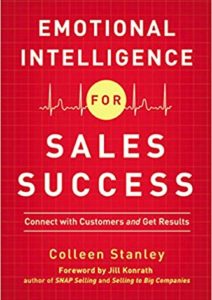Advice for My Younger, Sales Manager Self
There are several questions that I get asked in interviews that I particularly enjoy answering, mostly because they provoke introspection, humility, and thought. I am in the teaching and development profession. Part of why I am in this field, and why I excel at what I do, is because of the mistakes that I have made throughout my career, and my ability to help others not follow in my footsteps to becoming an effective sales leader, learning from my mistakes instead of making them themselves. So heed my advice for sales managers; the advice that I would have given my younger, sales manager self.
The Drive-By Conversation:
First, avoid what I call drive-by coaching conversations. Let me explain. Say you have a piece of feedback for someone on your sales team. You go into sharing your insights with the absolute best intentions, with the goal of assisting that salesperson to achieve better personal or professional outcomes. But, your schedule is jam-packed, and you only have a small amount of time to deliver this message, so you have a “drive-by” conversation, and your well-intended advice is poorly timed, and rendered less effective as a result.
Sales coaching is important. It’s one of the most important tasks that a sales manager does. The problem is that you have a lot of other important tasks to juggle too, and it’s the tendency of many managers to do quick, shortcut coaching sessions. But with sales coaching and people development, there can be no shortcuts. It takes time, and requires the same thoughtful preparation as a meeting with a prospect. You wouldn’t go into a meeting with a top client unprepared and unsure of how to drive your message effectively. That would likely lead to an outcome that isn’t ideal. The same thing happens when you go into a sales coaching conversation unprepared and unsure. These unplanned conversations lead to confusion, frustration, and don’t produce the kind of positive changes you want to instill in your team.
The Importance of Conflict Management:
Even if you don’t like to dance, many sales managers find themselves doing the tango. The sales tango. As a sales manager, tough conversations are part of the job description, but they’re not usually a managers favorite activity. This hesitance can lead to sales managers dancing around an issue instead of being direct and assertive with their sales team. Instead of being assertive, I was hoping the salesperson would read my mind and course correct. The salesperson was just hoping I would speak my mind and eliminate the need for a crystal ball.
Instead, try dancing with your salesperson, instead of dancing around them. Ensure that you are well versed in having these difficult conversations because they are inevitable necessities. Address the actual issues directly, and you will create coherence, trust in you, and answers that work for both you and your team.
Identify and Hire Top Talent:
Hiring is an important aspect of a sales managers job. It’s up to them to build a team of qualified salespeople that will make your life as manager easier, allowing you to do more coaching and directing, and less micromanaging. Often times, companies will focus on training for the sales team but can tend to be neglectful of providing training for sales managers. It becomes your responsibility to read every book that you can about hiring, registering for courses that teach behavior-based interviewing and teaching yourself the skills that you will need to hire employees that will make a top-notch sales team. When you have great salespeople on your team, you go from managing to leading. You hold coaching and training conversations, rather than accountability and performance conversations.
My older self is wiser and still learning. I like to follow advice from the renowned artist Michelangelo. When asked what inspired his lifetime of creativity, he replied, “Ancora imparo,” which means, “I am still learning.” How about you? What advice would you offer your younger, sales manager self?
Good Selling!













Comments